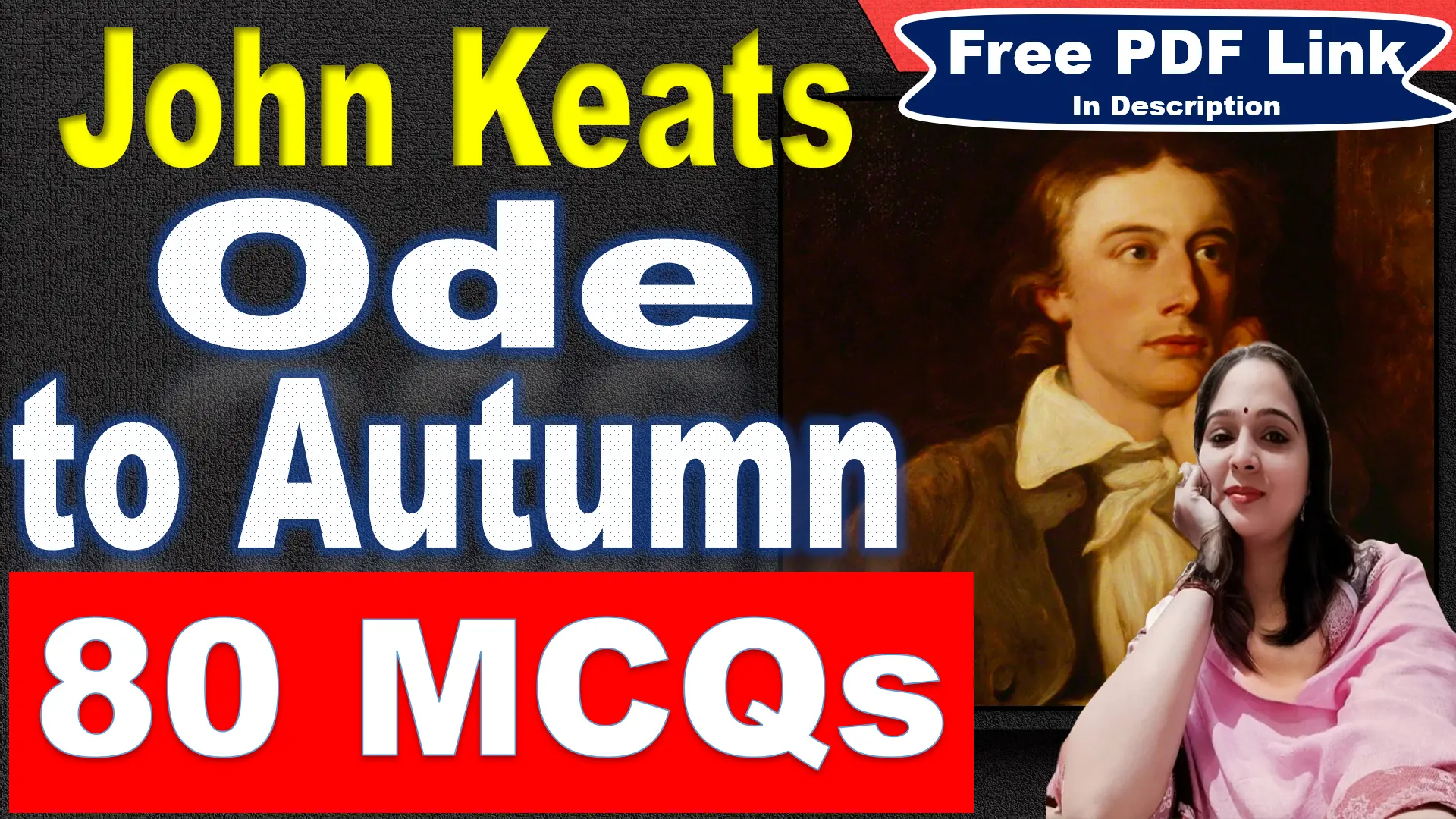Essay Type Questions
Write the critical appreciation of the poem “Dover Beach” by Matthew Arnold.
Introduction
“Dover Beach” is a lyric poem by the English poet Matthew Arnold. It was first published in 1867, but the date of its actual composition is uncertain. The poem is a dramatic monologue spoken by a person standing by the window of a house overlooking the English Channel near Dover.
Central Idea
The central idea of “Dover Beach” is the critical examination of faith in the world and the impact of its loss on the human condition. The speaker contemplates the ebb and flow of human misery, symbolized by the sea, and laments the decline of faith, symbolized by the withdrawing Sea of Faith.
Structure & Rhyme Scheme
“Dover Beach” is composed of 37 lines divided into four uneven stanzas. The poem does not follow a consistent rhyme scheme, which contributes to the sense of unease and uncertainty that pervades the poem. The lack of a fixed rhyme scheme also allows Arnold to vary the poem’s rhythm and pacing to suit its themes and mood.
Theme
Loss of Faith: One of the central themes of “Dover Beach” is the loss of faith, symbolized by the ebbing “Sea of Faith”. The speaker laments the decline of religious faith in the world, which he perceives as leading to a state of confusion, struggle, and uncertainty. This theme reflects the crisis of faith experienced by many during the Victorian era, a time of significant scientific discovery and societal change.
Love and Human Connection: Despite the despair and confusion caused by the loss of faith, the speaker finds solace in the personal love he shares with his beloved. He implores his beloved to be true to one another, suggesting that love and human connection can provide some comfort and certainty in an otherwise chaotic world.
The Power of Nature: The poem uses vivid imagery of the natural world, particularly the sea, to explore its themes. The sea, with its ebb and flow, serves as a metaphor for the cyclical nature of faith and human experience. The peaceful and serene imagery of the sea contrasts with the chaotic and confusing world of human life, underscoring the poem’s themes of loss of faith and the search for meaning.
The Human Condition: “Dover Beach” is a meditation on the human condition. It explores the ebb and flow of human misery, the enduring nature of human suffering, and the struggle to find meaning and certainty in a world that seems increasingly chaotic and uncertain. The speaker’s reflections on the sound of the sea and its reminder of the “turbid ebb and flow of human misery” highlight this theme.
The Transience of Life: The fleeting light on the French coast, the withdrawing roar of the Sea of Faith, and the shifting pebbles on the shore all symbolize the transience and impermanence of life. This theme is intertwined with the speaker’s contemplation of faith, love, and the nature of reality.
Conflict and Struggle: The final lines of the poem depict a world of “confused alarms of struggle and flight, where ignorant armies clash by night”. This presents a theme of conflict and struggle, both literal and metaphorical, reflecting the speaker’s view of a world in turmoil.
Style
“Dover Beach” is written in a contemplative and melancholic style. The language is rich and evocative, filled with vivid imagery and powerful metaphors. The tone shifts from peaceful and serene to melancholic and despairing, mirroring the speaker’s feelings and the poem’s themes.
Poetic Devices
Arnold employs a range of poetic devices in “Dover Beach”, including imagery, metaphor, alliteration, assonance, personification, symbolism, enjambment, and internal rhyme. These devices enhance the themes of the poem and make it a powerful expression of the speaker’s contemplation of faith, love, and the nature of reality in a world that seems increasingly chaotic and uncertain.
Message
The message of “Dover Beach” is a poignant commentary on the challenges and uncertainties of life. Despite the despair and confusion caused by the loss of faith, the speaker finds solace in the personal love he shares with his beloved. This suggests that love and human connection can provide some comfort and certainty in an otherwise chaotic world.
Conclusion
“Dover Beach” is a profound and moving poem that explores the human condition in a world of uncertainty and change. Its powerful imagery, thoughtful themes, and emotive language make it a timeless piece of literature that continues to resonate with readers today. Despite its melancholic tone, the poem ultimately affirms the value of love and human connection in a world that often seems devoid of meaning and certainty.





